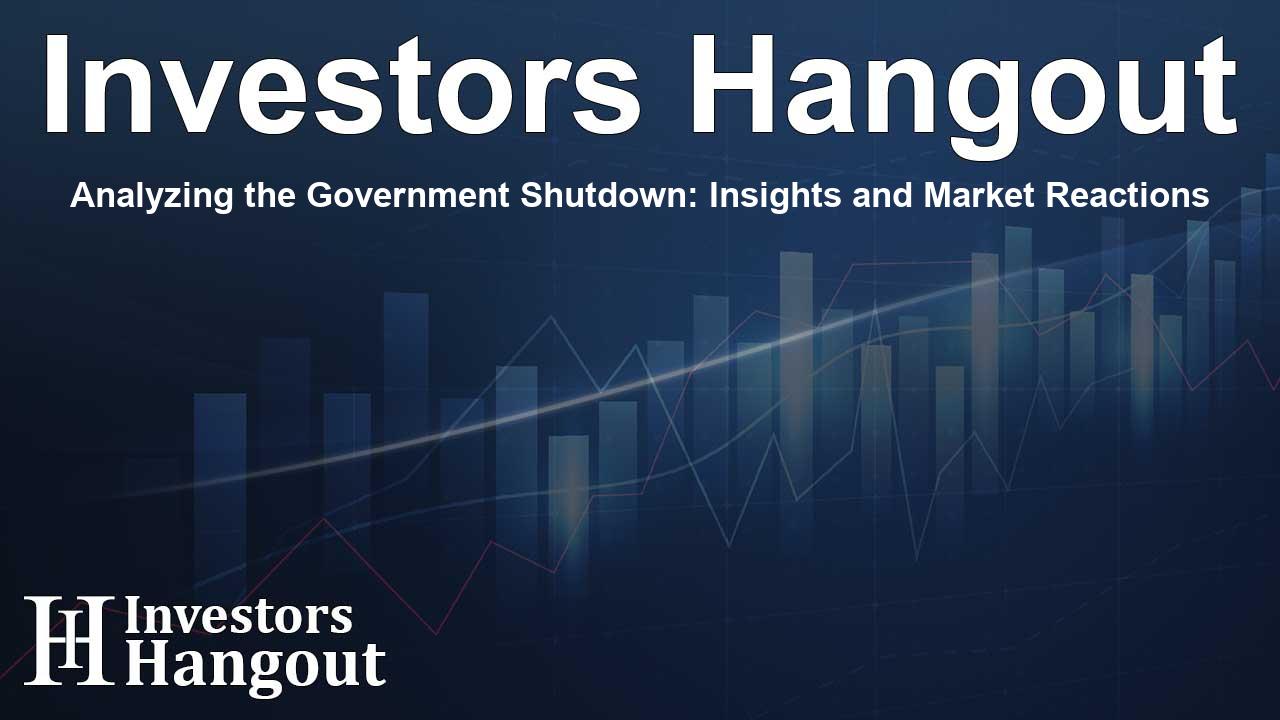Analyzing the Government Shutdown: Insights and Market Reactions

Understanding the Current Government Shutdown
The government shutdown that began recently has led to widespread uncertainty, with predictions suggesting it could extend into mid-October. With projections from leading analysts indicating a 70% chance of federal inactivity lasting until at least October 15, many are left wondering what this means for various sectors and markets.
Expert Predictions on the Shutdown Duration
Market Predictions and Political Implications
Experts are weighing in, highlighting the substantial budgetary disagreements between political parties as the core issue. Charlie Bilello, a renowned market strategist, points out this division in a recent social media post, where he discussed the high odds of long-lasting challenges ahead.
Unpacking the Stalemate: Healthcare Budget Issues
The main sticking point in negotiations stems from key healthcare budget decisions that involve deep cuts proposed by one party against another's desire to maintain previous spending levels. The tension between reinstating expanded Affordable Care Act (ACA) subsidies, which were originally set up to aid during the pandemic, complicates discussions.
The Impact of Shutdowns on the Stock Market
Market Resilience Despite Political Disruption
Interestingly, historical patterns show that government shutdowns do not necessarily cripple stock market performance. Many analysts, including Bilello, note a tendency for markets to thrive during such periods. For instance, the S&P 500 reportedly gained 10% during a significant shutdown a few years ago, which contradicts the fears of a market downturn.
Concerns About National Debt Growth
Despite relative calm in the markets, analysts remain concerned over rising national debt levels aggravated by ongoing spending. Bilello emphasizes the unsustainable trajectory of spending, which has seen unprecedented growth, culminating in an alarming increase towards the $38 trillion mark. Investors must remain aware of these underlying issues that persist beyond the immediate political turmoil.
Current Market Movements
The latest data shows mixed results for key market indicators. The SPDR S&P 500 ETF Trust (NYSE:SPY) and the Invesco QQQ Trust ETF (NASDAQ:QQQ) experienced slight declines. On recent trading days, SPY slipped, reflecting the cautious optimism among traders as they navigate the implications of the ongoing shutdown.
Frequently Asked Questions
What is the current status of the government shutdown?
The ongoing government shutdown is currently projected to extend potentially until mid-October due to political disagreements.
Why are healthcare budget issues causing the shutdown?
Healthcare budget disagreements stem from proposed cuts that clash with efforts to maintain previous funding levels for ACA subsidies.
How do shutdowns typically affect the stock market?
Historically, the stock market has shown resilience during shutdowns, often performing well despite political gridlocks.
What are the implications of rising national debt?
Increased national debt raises concerns about economic stability and future fiscal policies, particularly amidst the prolonged shutdown.
Which stocks are impacted by the current government situation?
Key stocks, notably SPY and QQQ, are influenced by market reactions to the shutdown and broader economic conditions.
About The Author
Contact Owen Jenkins privately here. Or send an email with ATTN: Owen Jenkins as the subject to contact@investorshangout.com.
About Investors Hangout
Investors Hangout is a leading online stock forum for financial discussion and learning, offering a wide range of free tools and resources. It draws in traders of all levels, who exchange market knowledge, investigate trading tactics, and keep an eye on industry developments in real time. Featuring financial articles, stock message boards, quotes, charts, company profiles, and live news updates. Through cooperative learning and a wealth of informational resources, it helps users from novices creating their first portfolios to experts honing their techniques. Join Investors Hangout today: https://investorshangout.com/
The content of this article is based on factual, publicly available information and does not represent legal, financial, or investment advice. Investors Hangout does not offer financial advice, and the author is not a licensed financial advisor. Consult a qualified advisor before making any financial or investment decisions based on this article. This article should not be considered advice to purchase, sell, or hold any securities or other investments. If any of the material provided here is inaccurate, please contact us for corrections.
